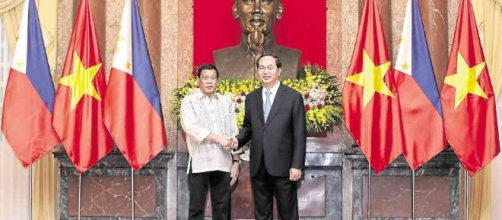The US-Philippines joint drills called "Balikatan" or "Shoulder to shoulder" officially ended on Thursday. However, Philippines president Rodrigo Duterte desires no more joint drills with the United States as he tries to wheel his country towards china.
What are the Balikatan drills all about?
The Philippines joint drills with the United States started in 1951 as part of a mutual defense treaty with America. This treaty effectively turned the Philippines into an American stopover base as the US fought the Vietnam War in the 70's. In 1991, the last of the American bases were emptied and all US forces completely left the country, but the joint drills continued.
President Duterte sees these drills as an obstacle for his pivot to China. He argues that the joint drills are antagonizing China, as the treaty also allowed the use of Filipino waters for American warships. In 2016, Duterte amended the treaty to abandon war games and military drills between the two countries in favor of humanitarian programs and counter-terrorism training.
Because the war games are no longer part of the joint drills treaty, Philippines and American soldiers are trained in disaster response, building basic infrastructure in response to calamities, and exchanging counter-terrorism techniques.
How will Duterte's pivot to China affect US military plans in Southeast Asia?
The United States used the Philippines as a front line base in Southeast Asia for decades.
Since its annexation at the end of the Spanish-American War, the US had transformed the country into its window to the far east. President Duterte sees this as American colonialism and wants to end it once and for all.
The drift from the U.S. started with Duterte coming to office in 2016, after former President Obama condemned the drug war in the Philippines.
Since then, Duterte pushed a China-centered policy which threatens America's foothold in Asia.
Duterte made a number of meetings with President Xi Jinping of China, including the forum for the Belt and Road Initiative. The Philippines hopes to benefit from the massive Chinese undertaking in uniting the entire Eurasian continent under an interconnected web of transportation and communication.
China had pledged $124 billion to start the project, hoping that other countries, especially Russia, will join this immense undertaking. Once completed, the Belt and Road Initiative will connect Europe, Asia, and Africa in a trade network never seen before. Duterte sees this and wants his country to be one of the countries that will benefit from China's economic progress.


